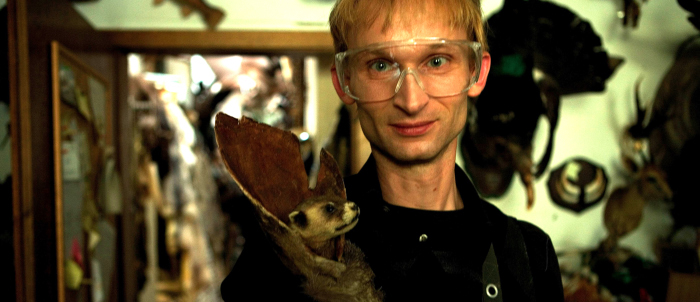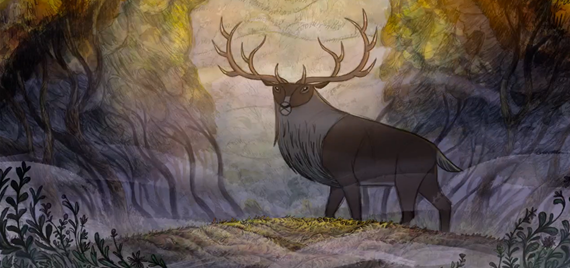Tag: Historical
-
Red River. Dir. Howard Hawks. Monterey Productions. 1948.
American expansionism and the frontier myth – the romanticisation of prosperity found in claiming the ‘wilderness’ and the forceful expansion of the American border – pillars of the Western genre [1]. From Jan Troell’s The New Land (1982), John Ford’s Wagon Master (1950) to Charlie Chaplin’s Gold Rush (1925); Western cinema has constantly glorified the rich…
-
Pocahontas II: Journey to a New World. Dir. Tom Ellery and Bradley Raymond. Walt Disney Home Video. 1998.
In Pocahontas II: Journey to a New World, Pocahontas voyages to England with John Rolfe, an English diplomat. She must stop the villainous Governor Ratcliffe’s manipulation of King James and prevent the King from declaring war on the Native Americans. As expected in a Disney film, she just happens to fall in love with Rolfe…
-
Pocahontas. Dir. Eric Goldberg and Mike Gabriel. The Walt Disney Company. 1995.
In Pocahontas, the animosity between Meeko, the Native American raccoon and Percy, the English pug is a microcosm of the conflict between the Native and English humans. The animals are comic foils, providing family-friendly slapstick relief from human violence. However, the inclusion of animals adds meaning beyond just comedic value. The animals and humans both…
-
Jojo Rabbit. Dir. Taika Waititi. Fox Searchlight Pictures. 2019.
Taika Waititi’s Jojo Rabbit embodies the toxicity of hegemonic masculinity in Nazi Germany, utilising the rabbit ‘as a material and symbolic resource.’[1]. Waititi’s decision to navigate the film through the eyes of ten-year-old Jojo is significant, as Jojo’s own conflicted sense of masculinity is underscored through the rabbit as a symbol of gender, as his…

